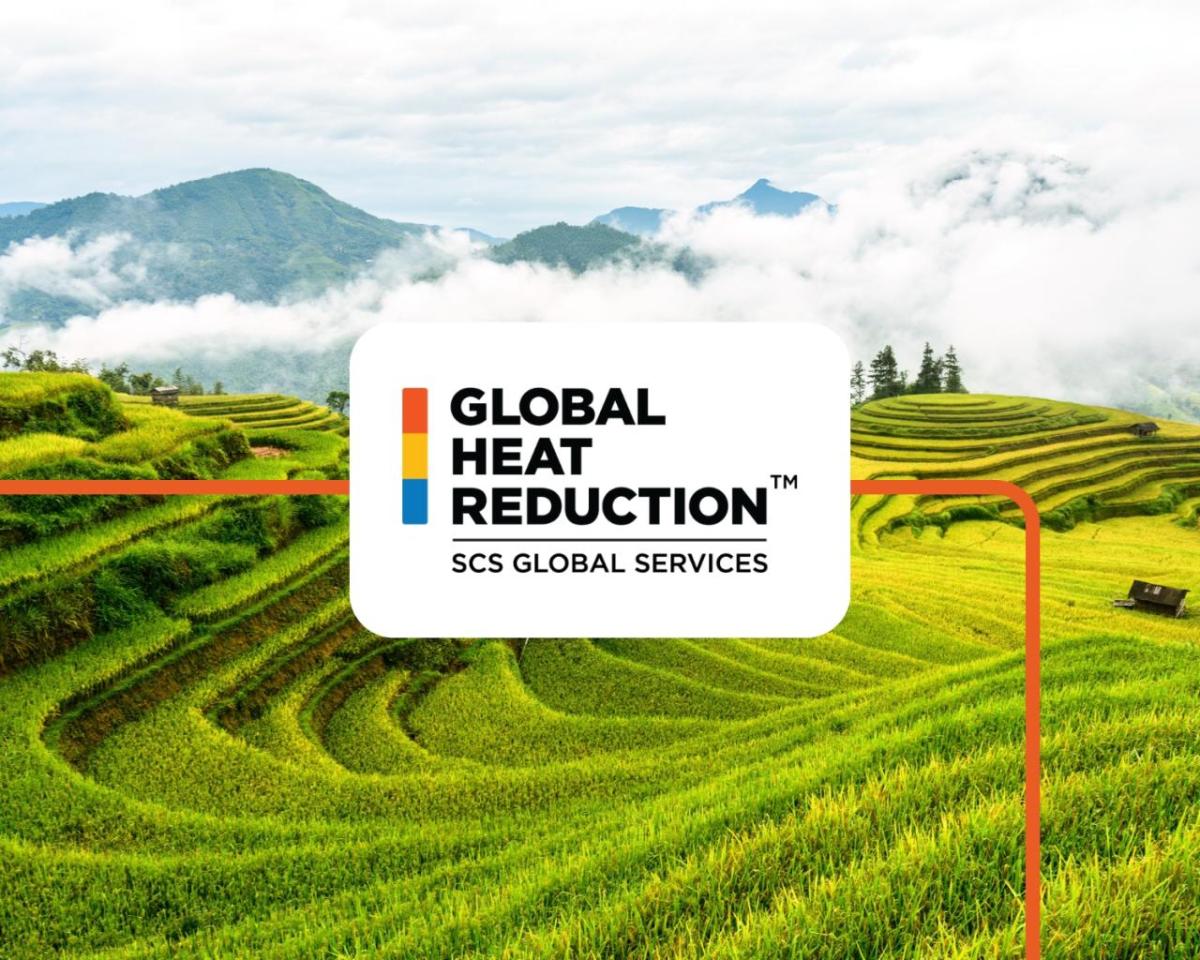New Rice Farming Methodology From Global Heat Reduction Initiative Zeros In on Projects That Reduce Climate Super Pollutants
30-Day Public Comment Period Announced

EMERYVILLE, Calif., August 27, 2025 /3BL/ - Today, the Global Heat Reduction Initiative (GHR) released a first-of-its-kind methodology that will measure and reward the reduction in climate super pollutants achieved through more sustainable rice cultivation practices. In addition to covering the full range of greenhouse gases including the powerful climate pollutants, methane and nitrous oxide, it also accounts for black carbon emissions associated with burning and equipment operations. The methodology also enables users for the first time to assess the global heat reduction value of reducing these emissions over near-term timeframes, such as between now and 2030 or 2050.
“This methodology uses our Total Climate Accounting™ approach to add breadth and depth to the analysis of sustainable rice production projects and credits derived from them,” said Kiff Gallagher, GHR Executive Director. “This new level of information will bring enhanced value for project proponents in terms of climate impact and claims.”
GHR is now seeking public comments from stakeholders interested in providing inputs on the new “Methodology for Assessing Emission Reductions from Rice Cultivation.”
Rice, a cornerstone of global food security, currently drives 1.3%–1.8% of global greenhouse gas emissions. Rice paddy cultivation accounts for 10-12% of global methane emissions. Methane is far more potent than carbon dioxide in the years immediately after being released (80 times more potent over first 20 years), before eventually breaking down into carbon dioxide, which lasts for centuries. Nitrous oxide, another super pollutant, is associated with the production and application of synthetic fertilizers.
In addition to greenhouse gases, open field burning releases plumes of black carbon that fuel air pollution and global warming, with heat impacts many thousands of times more potent than carbon dioxide while airborne. Over time, as black carbon particles fall back to earth, they can deposit on ice and snow, accelerating warming further. Yet despite its significant impacts on both health and climate, black carbon has thus far been largely omitted from current carbon markets, meaning that its mitigation is not currently incentivized. By quantifying black carbon emissions, the new methodology will enable farmers who demonstrate black carbon reductions to yield more credits compared to an approach that only looks at gases.
“Sustainable rice production, including reduced agricultural burning, is a meaningful opportunity to improve air quality and reduce near-term heat,” said Dr. Katie Kaku, GHR Senior Technical Director, who led the development of the methodology.
The methodology reflects GHR’s commitment to driving credible, high-impact mitigation strategies that address all heat drivers. The methodology was developed in consultation with agronomists, climate scientists, and policymakers across the globe to ensure the highest levels of integrity and accuracy.
GHR now invites rice producers, carbon market actors, scientists, and civil society organizations to review and comment on the methodology during its 30-day public consultation period, which begins August 27. The draft methodology and instructions for submitting comments can be found here.
Media Contact:
[email protected]
About the Global Heat Reduction Initiative:
Global Heat Reduction Initiative combines cutting-edge methodology with expert advisory, enabling organizations to understand their total climate footprint, plan comprehensive mitigation strategies, and accelerate heat reduction. With this holistic view, organizations can prioritize interventions with the greatest climate return per dollar spent, unlock faster climate progress, and deliver immediate local benefits. Learn more at www.heatreduction.com.
SCS Global Services is an international leader in third-party environmental and sustainability verification, certification, auditing, and standards development with over 40 years of experience. Its programs span a cross-section of industries, recognizing achievements in climate mitigation, green building, product manufacturing, food and agriculture, forestry, consumer products, and more. Headquartered in Emeryville, California, SCS has representatives and affiliate offices throughout the Americas, Asia/Pacific, Europe, and Africa. Its broad network of auditors are experts in their fields, and the company is a trusted partner to companies, agencies, and advocacy organizations due to its dedication to quality and professionalism. SCS is a California-chartered Benefit Corporation, reflecting its commitment to socially and environmentally responsible business practices. SCS is also a Participant of the United Nations Global Compact and adheres to its principles-based approach to responsible business. For more information, www.SCSGlobalServices.com.

